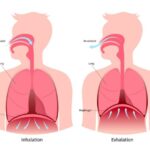Each new year offers an opportunity for introspection. In the rehab/wellness spectrum, we often ask the question: how can we help optimize the body’s health to enhance productivity and enjoyment within the human experience. There are many pillars to health, but if you can nail these 6 this year, you’ll be well on your way to a healthy new you! The 6 key concepts we’ll briefly discuss in this post are: sleep, enjoy, think, move, eat, connect.
Sleep

An old Irish Proverb says: “A good laugh and a long sleep are the best cures in the doctor’s book.”
With the fast pace of our world today, good quality sleep seems to be more and more difficult to come by. The Sleep Foundation reports that only 1 in 10 Americans consider sleep their top priority when compared with fitness, hobbies, work, and social life. Additionally, 68% of Americans struggle with their sleep at least once per week according to Consumer Reports.
The skill of making quality sleep a nightly habit is essential for maintaining brain health crucial for creativity, problem solving, decision-making, learning, and memory. It has also been shown to support heart health, immune health, emotional well-being, mental health, and also increase life span.
The Sleep Association recommends the following amounts of sleep per age group:
Adult: 7-9 hours/night
Teenager: 8-10 hours/night
Child between ages 6-12: 9-12 hours/night
Child between ages 3-5: 10-13 hours (including naps)
Child between ages 1-2: 11-14 hours (including naps)
Infants 4-12 months: 12-16 hours (including naps)
As sleep deprivation can also play into the symptoms that our patients present with, we have addressed this topic in the past. The good news is that there are several steps you can take to improve sleep and wake up feeling better!
Improved sleep is worth investing in, and there are many helpful tools on the market that can help, including finding a good mattress and pillow, sleep masks, EMF rocks, air purifiers, white noise machines, and alarm clock. These are discussed in more detail in our Jumpstart Your Health Class.
Enjoy

We usually talk about stress in terms of how to best “manage it,” almost as if it is something to defend against. But what would it look like to attack stress from an offensive angle?
Using this mindset, we seek to intentionally engage in activities and mindsets that encourage a sense of peace, calm, and relaxation. This could take the shape of planning fun activities, outings or events. A 2015 study in the Journal of Experimental Social Psychology found that anticipating a positive event enhances a person’s mood and helps them cope with stress better.
Christian Waugh, PhD, co-auther of the study and an associate professor of psychology at Wake Forest University states “[Anticipation] promotes approach thinking, so the feeling that you’re going towards something you want or desire, as opposed to going away from something you fear, which gives a sense of well-being.”
Another factor to consider in taking an offensive approach to stress is how you breathe. In his 2020 book, Breath: The New Science of a Lost Art, James Nestor asserts that there is nothing more essential to health and wellbeing than breathing. Breathing has been shown to effect anxiety levels, hormonal responses, memory consolidation, blood pressure, and heart rate.
Other strategies to consider to induce increased calm include creating margin in your day and cultivating a mindful focus on gratitude. Margin, or space, in your day allows for transition time between events, and diminishes feeling rushed and stressed. Likewise, dwelling on the positives rather than negatives can be psychologically and socially beneficial, and a recent review even suggested that gratitude can improve cardiovascular health.
Think

There are 3 main points to think about this year: having a growth mindset, challenging the brain, and setting goals.
First, a growth mindset is focused on self-improvement and sees challenges as opportunities for learning, growth, and development. On the flip side, a fixed mindset is results-oriented and failure is seen as a waste.
When we adopt a growth mindset, it frees us up to tackle difficult problems and challenges, knowing that regardless of the outcome we will come through it a stronger, more resilient person.
If you’re not exactly where you want to be mindset-wise here are some tips to get you started: practice positive self-talk, embrace imperfection and have grace for yourself, practice gratitude, surround yourself with positive people, listen to uplifting music, and keep your life in perspective.
Second, it is important to continue to challenge the brain on a daily basis. Just because you finish school does not mean that you should stop learning. We know from research that the brain has the incredible ability to grow and adapt throughout the lifespan. Even people with early-stage Alzheimers’s Disease demonstrated the ability to improve their cognitive abilities when challenged.
Here are some ideas to help challenge your brain: read a book, play board games, participate in an escape room, or even learn a new language or musical instrument. You could also solve puzzles, brainteasers, riddles, mathematical problems, and sudoku.
Third, even if you have not already done so: set a few goals for this year, and write them down. What do you want this year to look like? What do you want to accomplish with your time?
Here are some tips to get you started on goal-setting: think about what inspires you, choose realistic goals, make goals collectively with friends, have a purpose for your goals, don’t overwhelm yourself by changing too much at once, and set micro goals and have checkpoints every couple of months.
Finally, remember your purpose for setting goals. Zig Ziglar once famously said: “What you get by achieving your goals is not as important as what you become by achieving your goals.”
Move

Only 1 in 3 adults engage in the recommended amount of exercise each week. As a whole, our society is embracing a sedentary lifestyle and as a result disease rates are skyrocketing.
Like sleep and eating, exercise should ideally be built into your daily routine. Time may be a limiting factor for some, but remember that even a little is better than none.
With a little extra effort, exercise can easily be made into a lifestyle. For example, try taking the stairs rather than the elevator, parking further away in the parking lot, and taking frequent standing breaks if confined to a desk job. Additional tips to help integrate movement into your daily lifestyle include: walk and talk while on the phone, play with your kids or grandkids, do your own home cleaning and yard work, and stretch and/or exercise while watching TV.
But aside from having an active lifestyle, one should ideally engage in an intentionally focused exercise program. An optimal exercise program is one that is well-rounded, including strengthening, endurance, flexibility, balance, and functionality. If you struggle to push yourself, make your workout social by including others.
Are you the type of person that is inspired by those who push you? Surround yourself with people of this caliber. If you prefer workout partners at your level or lower, consider reaching out to someone that fits this description and encourage them to join you!
How you move is also vitally important. Maintaining proper body mechanics can help improve efficiency and prevent injury. There are good and not-so-good ways of performing everyday movements such as rising from a seated position, bending down to pick something up off the ground, and even getting out of bed.
At IPA Physio, we are passionate about educating our patients on the effective use of body mechanics, as we believe this is directly related to both their recovery and success moving forward. We have several great resources for body mechanics on our Instagram page (@ipaphysio), and also on YouTube.
For more information on physical activity guidelines see the Center for Disease Control Recommendations.
Eat

Everything we put into our bodies literally becomes what we’re made of. Let that sink in for a moment. Though we all have different preferences in foods, there are some overarching health recommendations that most agree is better for the body.
In general, try to avoid refined sugar and processed foods, and limit red meat (especially processed lunch meats as these have been classified by the World Health Organization as a Group 1 carcinegen). Other healthy nutrition habits include: cooking more at home (consider eating out 1x/week or less) and consuming more whole grains, fruits, and vegetables.
For additional resources on healthy eating or specific nutrition concerns check out: nutritionfacts.org. A great documentary on the connection between nutrition and disease is “Forks over Knives,” which is currently available on Netflix. For a detailed scientific analysis of nutritional considerations for the world’s most lethal diseases (including heart disease, cancer, and diabetes) check out “How Not To Die” by Dr. Michael Greger.
If trying to change your diet this year it may be helpful to start with small changes and give yourself grace if you’re not perfect. Based on the principle of neuroadaptation, it takes time for the taste buds to become accustomed to and enjoy a new menu (for me it took 3-4 months). See change as a long-game, and be patient in waiting for your body and brain to adapt.
Other suggestions for starting a new eating pattern include: setting up your environment for success, learning from a mentor, and planning ahead. Be reassured that while changing your diet is not easy, many that do succeed find it worthwhile!
Connect

Social connection is vital to health on many levels. Studies have suggested the benefits to include: increased longevity, strengthened immune system, improved recovery from disease, lower rates of anxiety and depression, higher self-esteem, increased empathy towards others, and increased happiness. However, during this COVID-19 season, it has been more difficult than ever before to connect with friends, family, and loved ones.
Brene Brown says “A deep sense of love and belonging is an irresistible need of all people. We are biologically, cognitively, physically, and spiritually wired to love, to be loved, and to belong. When those needs are not met, we don’t function as we were meant too. We break. We fall apart. We numb. We ache. We hurt others. We get sick.”
Despite living in the midst of a pandemic, there are still ways we can connect with each other. FaceTime and Zoom are amazing modern technologies that allow us to still communicate face-to-face while not together in-person. Additionally, social media, writing letters, and drive-by social opportunities, are all great ways to stay in touch.
Closing Thoughts
Maintaining and enhancing personal health and wellbeing is life-long journey. Sometimes sacrifice is necessary in one area in order for more focus in anther (ie. skipping a morning workout to get more sleep or vice versa). Patience is essential and progress is a better goal than perfection. I hope one or more of the concepts we’ve discussed in this post will be helpful for you this new year. Please let us know how we can best support you in achieving your health goals!
For more information, check out our Jumpstart Your Health Class on Youtube.






